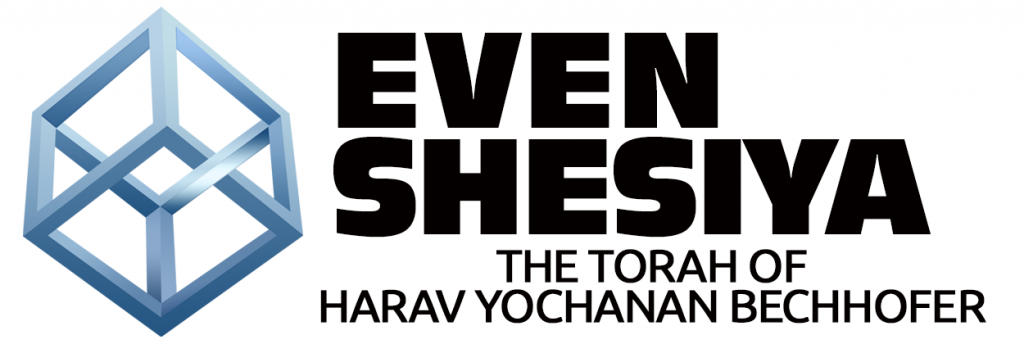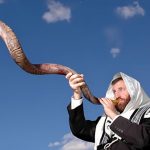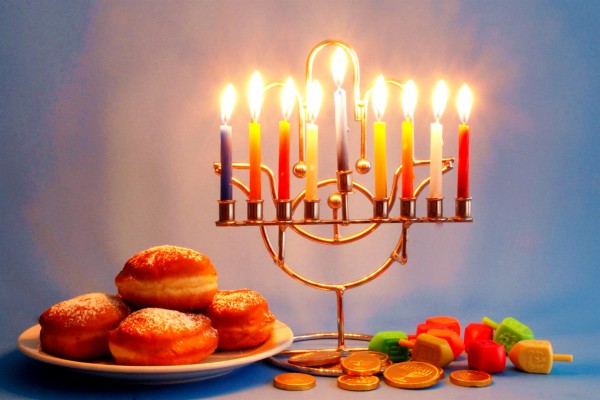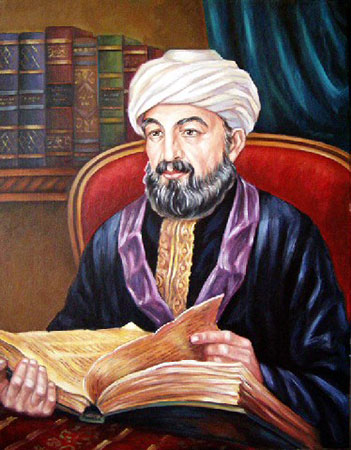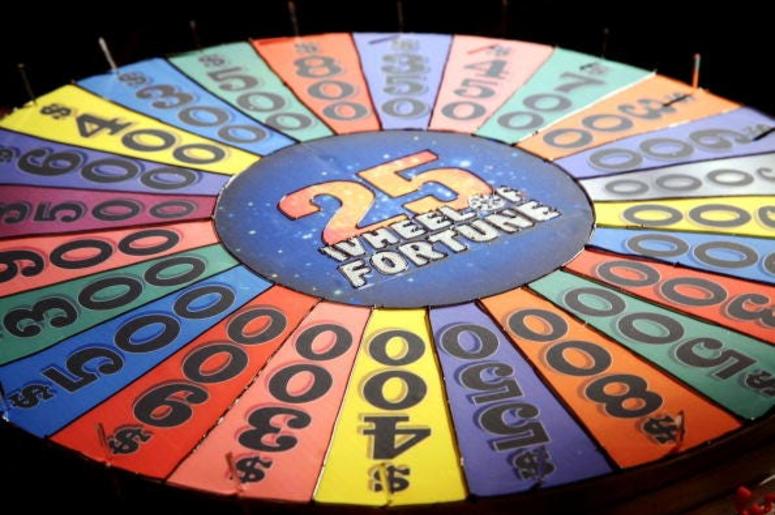Click here to download PDF
Eisov makes Drashos?!?
Like any good diplomat, Yaakov has a double message for Eisov, a conciliatory even submissive message and a tough one. He says with Lavan “Garti”– I resided. Rashi explains “Garti”- “I resided as a stranger and I was not made nobility or important. It’s not worth your while to hate me for the blessings Yitzchak gave me instead of you. He blessed me to be an important person to my brothers and that has not been fulfilled”. Rashi offers another explanation that “Garti” is numerical value 613 to say that “even though I lived with evil Lavan I still kept the 613 mitzvot and did not learn from his evil deeds” – in other words: I have great spiritual merit – don’t mess with me! Similarly, Yaakov says “I got an ox and a donkey”. Rashi, obviously bothered by the fact that he says in singular form, explains that that is a modest and cultured way of speaking: Call many oxen an “ox” and many donkeys a “donkey”. Rashi goes on to explain that this is part of the “soft message”: “It is not worth your hating me for the blessings I took because they were not fulfilled. Yitzchak blessed me to have “from the dew of the Heaven and the fat of the land” and oxen and donkeys are not from the Heaven or from the land”. However, the Midrash Rabbah has a different approach and says that indeed it is to be understood literally one ox and one donkey. The one “ox” is Yosef who is likened to an ox and the one “donkey” is your Yissachar who’s likened to a donkey This was a tough message! Yissachar is the tribe that has the Merit of Torah learning and Yosef is the well-known adversary to Eisov Rashi mentions in a few places. When he finally meets Eisov and begs him to accept the gift Yaakov says to him: “take my gift from me because I see your face like that of an Angel” Rashi says that in the simple meaning he was flattering Eisov. However, in an indirect way he was alluding to the fact that the night before he had fought with angels – so he knows what angels look like. The message was – a man that fights with angels is someone Eisov ought to be afraid of. The problem is: The ‘tough message’ is never the simple meaning of the words! This is particularly glaring by the first two which require making a “Drasha” on “ox” and “donkey” or to figure out the numerical value of “Garti” and then apply it to Yaakov keeping all the Mitzvos. Did Yaakov seriously expect Eisov to make these “Drashos” and “Cheshbonos”?!?
Pick someone your own size!
Yaakov is very submissive towards Eisov the human being in what he literally says to him, the gifts he sends, and how he bows to him. Eisov’s ministering Angel he wrestles and beats up! Granted he did not have a choice whether to fight with the angel or not but nonetheless this begs a question: If you could choose who to fight with, a mortal man or Angel, who would you choose? Obviously you choose the mortal man, the power of an Angel is exponentially more then the power of human being!! Why didn’t it work out that way? To mortal Eisov Yaakov is submissive and to the ministering angel of Eisov he’s tough! Where is the logic in how the situation played out? One would have thought it should have been the opposite: submit to the angel but don’t fear your fellow man…..
Gift to Eisov: Midrash vs Zohar
Regarding Yaakov submissiveness in general and sending the lavish gift to Eisov in particular: Chazal in the midrash are critical of him! They criticize him for being overly self-effacing and calling himself “your servant Yaakov”. Furthermore, sending lavish gifts to a gentile is seemingly prohibited. However, the Zohar says an amazing thing: Yaakov sending (“shalach”) the gift to Eisov was a form of “Seir Hamishtaleach” – the scapegoat that we send off the cliff on Yom Kippur that atones for all our sins. How do we understand this “Machlokes” between the Zohar and the Midrash and more importantly how do understand what the Zohar means that the gift to Eisov was a form of “Seir Hamishtaleach”?
Corresponding complexity of Torah & Reality
The complexity of Torah is reflected by the universe that was created from it and in man himself who is selling a “Tzelem Elokim”- a Divine image. The Torah that has four levels of understanding: “P’shat” – the simple straightforward meaning, “D’rush” – what is derived using certain tools, “Remez” – allegory where allude to something else in addition to their simple meaning, and “Sod”– secret which is a whole other level of everything alluding to a Divine Name or Divine Energy. This is reflected in reality itself that was created from the Torah. Reality has the Physical realm and is parallel to the level of “P’shat” and that realm is called “Olam Ha’Asiya” – the word of activity as in physical actions. There’s a spiritual world corresponding to “D’rush” inhabited by Angels and that’s called “Olam HaYetzira” –the world of form which means there’s no physical mass. There is a higher world corresponding to “Remez” called “Olam Habria” the world of creation where there are the elemental powers that reality is forged from. The higher world corresponding to “Sod” is “Olam Ha’Atzilus”– World of pure Divine Majesty where there’s the Divine Names. These four worlds are parallel to the four levels that there are in Torah that’s the blueprint of creation.
Levels of Soul
Man is a “Divine image” because he reflects everything that’s in reality and Torah. Just like he has 248 organs and 365 sinews corresponding to the 248 positive commandments and 365 negative commandments so also he has levels of soul that correspond to the higher levels of Torah. Man has a level of soul called “Nefesh” and that is parallel to the world of “Asiya” which corresponds with “P’shat” and that is the aspect of soul that actually inhabits the body. Above that he has a level called “Ruach” paralell to the world of “Yetzira” corresponding to the level of “D’rush”. Above that he has a level called the “Neshama” paralell to the World of ”Briah” corresponding to the level of “Remez”. Above that he has a category (which subdivides into two – but that is another discussion) called “Shoresh HaNeshama” parallel to “Atzilus” corresponding to the level of Toral called “Sod”.
Multi-Dimensional Warfare
Our adversity with Gentiles in general and Eisov in particular is a complex one. It’s not like having a fight with a wild animal. A wild animal is only a physical problem. It’s a creature of nature and the problem is a natural one. However, with the Gentiles in general and Eisov in particular there is a spiritual dimension to the struggle. Even though they don’t have souls like we do (as explained in the Nefesh HaChaim section 1 chapter 4), but nonetheless they do have a type of soul and they do have ministering angels in heaven! Their ministering Angels are also at war with us in the form of prosecuting against us in the heavenly Court and if their claims are accepted they are able to manipulate spiritual forces against us and certainly give strength to the nations that they administer on Earth, as per this week’s parsha (see also Rashi Shemos 14:10 on the words “and Egypt was traveling behind them”). For this reason, Chazal say that Hashem first takes down the ministering angel of a Nation before He takes down the nation itself on Earth. This is true by all nations in general, but it’s particularly true of Eisov who has very high spiritual roots! He is a descendant of Avraham, Sarah, Yitzchak, and Rivka and he was originally born “Jewish”. A sign of his very high spiritual root is the fact that his head is buried in the Me’aras HaMachpela with the rest of the Avos and Imahos. That’s why we find in this week’s haftarah the Navi says: “if you go up like an eagle and nest between the Stars even from there I’ll bring you down”. Eisov has very high heavenly roots, much more than the other Gentiles, and therefore presents a more formidable challenge.
The Yaakov-Eisov Seesaw
Another complexity to our adversity with Eisov is that he is guaranteed victory commensurate to whatever sins we commit. Yitzchak already promised that to Eisov by the consolation blessings that he gave: “Whenever Yaakov goes down you will break his yoke off your neck”. Every sin we commit translates into some form of victory for Eisov. This seesaw relationship that we have with Eisov in particular is what the gemara means when it says: “Rome and Yerushalayim cannot be fully built at the same time – if someone tells you ‘Yerushalayim is fully rebuilt’ you know that Rome is destroyed! And vice versa: if someone tells you ‘Rome is fully built’ you know that Yerushalayim destroyed”. We cannot both be prosperous at the same time! If we are virtuous Eisov is down, and if we are lacking in any way to the extent that we are lacking that immediately translates into some form of ascension and victory for Eisov.
Pick Your Losses
The amazing precedent that’s being set in this week’s Parsha is: Even though Eisov his guaranteed victory parallel to every sin that we commit, nonetheless, those victories will only be in body but not in spirit! This is the secret that the confrontation with Eisov was dual! The Angel is the spiritual side of Eisov that Yaakov defeats (the secret of the single temporary setback of that struggle where Yaakov’s legs get injured which resulted in the prohibition of “Gid HaNasheh” will be explained in the special edition of “Even Shesiya” that will be released for Chanukah). In the spirit there are no compromises and no losses! The Jewish spirit is unbreakable and in the heavenly side of the battle we will always win. To Eisov in the flesh Yaakov bows, because Eisov must be granted victory parallel to every sin we do, let it be in the body only – but never in the soul or spiritual realm.
Expression in Torah
That’s the secret that the soft tone message is in “P’shat”– the simple meaning of the words corresponding to the body and the world of activity. That’s indeed where we will have to be submissive to Eisov whenever we sin! The tough message is in the realms of the “D’rush” and above which correspond to the spiritual the realms where Eisov’s spiritual roots are. Over there are no compromises and no losses! The ‘tough message’ was not necessarily to Eisov in body for his physical biochemical mind to understand. The tough message was a cosmic one, speaking to his soul, his ministering Angel, his roots in the spiritual levels of reality. That’s why the toughness could only be found in the “D’rush” and upwards – parallel to the spiritual realms.
“Seir Hamishtaleach”
With this we can understand the Machlokes between the Midrash and the Zohar. The Midrash is coming from the vantage point of “P’shat” – the Earthly understanding and calling it as they see it. The way it looks from a physical perspective is that Yaakov engaged in superfluous flattery and giving gifts to an evil person that he may have been able to avoid. From that perspective it was questionable. The “Se’ir l’azazel” is actually the case in point! Technically, the “Se’ir l’azazel” is an offering to the Satan which is the worst idolatry imaginable! However, the reason why it’s not only permitted but even a Mitzvah is because the Torah commanded to do it! If a person would look at “Se’ir l’azazel” without being mindful of the fact that the Torah commanded it, it would look like a terrible act of idolatry. Since the Torah commanded us, it cannot be idolatry, there’s something deeper going. On the surface it looks like giving a offering to the Satan, but in the depth of it we are throwing our sins right back at him! We’re actually divesting Satan from the “stakes” he has in us because of our sins. By removing evil from ourselves and sending it to Satan all evil collapses on itself and is removed from reality! Everyone should be mindful of this inner truth of “Se’ir l’azazel” because the command of the Torah to do it is “black on white” in the Torah and therefore is “P’shat”!
The “Gift” to Eisov
“Se’ir” is also the name of Eisov’s nation. In “Sod” -secret meaning, sending the gifts to Eisov represented the exact same thing as “Se’ir l’azazel”! On the surface it is flattery and a gift to a wicked person. It will always look like that on the “P’shat” level because there is no Pasuk with a command from Hashem to do it! In the depth of it, in the spiritual realms, it’s not what it looks like. Yaakov was saying on the “Sod” level: because of our sins you have “stakes” in us – take back whatever you own in us! The Midrash was looking at the “P’shat”/Halachik and the Zohar was looking at the hidden spiritual aspect of what’s going on and both are true. The failure is in body corresponding to “P’shat” and the victory is in spirit corresponding to “Sod”! To satisfy the Midrash’s concerns the Midrash itself concludes that in the future all the gifts that Yaakov gave to Eisov will be returned!! Thus the “Sod” and the Halachah will ultimately be reconciled.
Chanukah in the Nation & the Individual
The Sefarim say that Yaakov going back for the little jugs and the angel wrestling with him is an allusion to the story of Chanukah – the jug of oil and the struggle against the Greeks, which was a spiritual struggle. What prompted the revolt against the Greeks was the fact that they wanted to impose their culture on us and to annul the Torah. The victory of Chanukah was precedented here! But not just Chanukah, but in all struggles with the gentiles, when it comes to the spirit we will always be victorious! This is not just on the national level but also in the world of the individual! Because of our sins, “aveira goreres aveira”– a sin pulls in another sin and we strengthen the Yetzer Harah with our failures. The Gemara says: “Hashem, You know that our will is to do Your Will, but who ‘gets in the way’ the Yetzer Harah and the subjugation of the nations”. An amazing thing is being said here: Even internally with the Yetzer Harah just gets in the way of the body performing the Mitzvahs but the Yetzer Harah never affects our will -which is reflective of our soul! Our Souls are never warped by the Yetzer Harah, he only ‘gets in the way’ of the flesh following the spirit – but the spirit will always be faithful to Hashem! That is what Yaakov precedented for the nation as per Chanukah, and for us as individuals in all our struggles with the Yetzer Harah.
Be part of ZIKUY HARABIM and sponsor an Edition of “EVEN SHESIYA” please text 917-612-4778 to inquire about sponsorship possibilities or click here now
